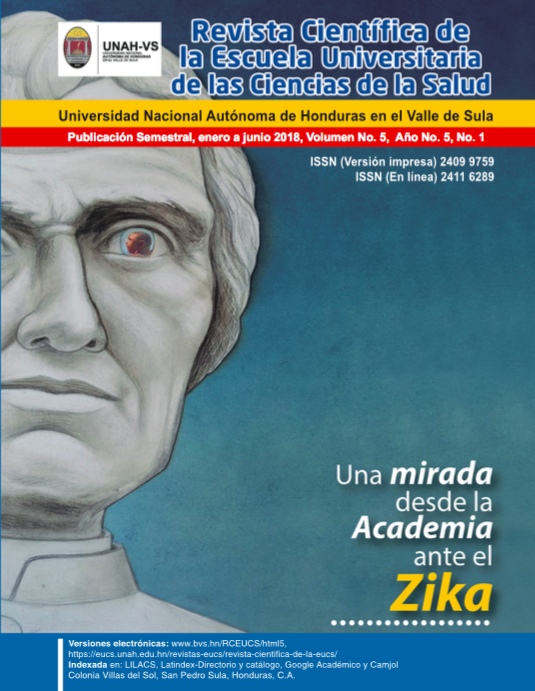General characterization of Zika
DOI:
https://doi.org/10.5377/rceucs.v5i1.7208Abstract
The Zika is an arbovirus that causes febrile illness characterized by fever, rash, arthralgia and non-purulent conjunctivitis. In 2015, indigenous cases were registered in Brazil, in less than a year the Zika extended to more than 30 countries and territories of Central America, South America, the Caribbean and Mexico, among these Honduras. It has been related to an increase in the cases of Guillain Barré and microcephaly in areas where there is an epidemic. In Honduras, between epidemiological week 1 from 2016 to 33 of 2017, there was a cumulative total of 681 pregnant women with suspected Zika identified in the country, 125 of whom have been confirmed in the laboratory by polymerase chain reaction. A bibliographic review of 30 articles was made taking as reference: journal articles, norms and recommendations less than 5 years after being published or those with historical importance, in order to provide useful information to the reader about the subject. Zika is a disease that can have a negative impact on the health of children, leaving long-term consequences.
Keywords
Zika Virus, Arboviroses, Microcephaly
Downloads
1163




